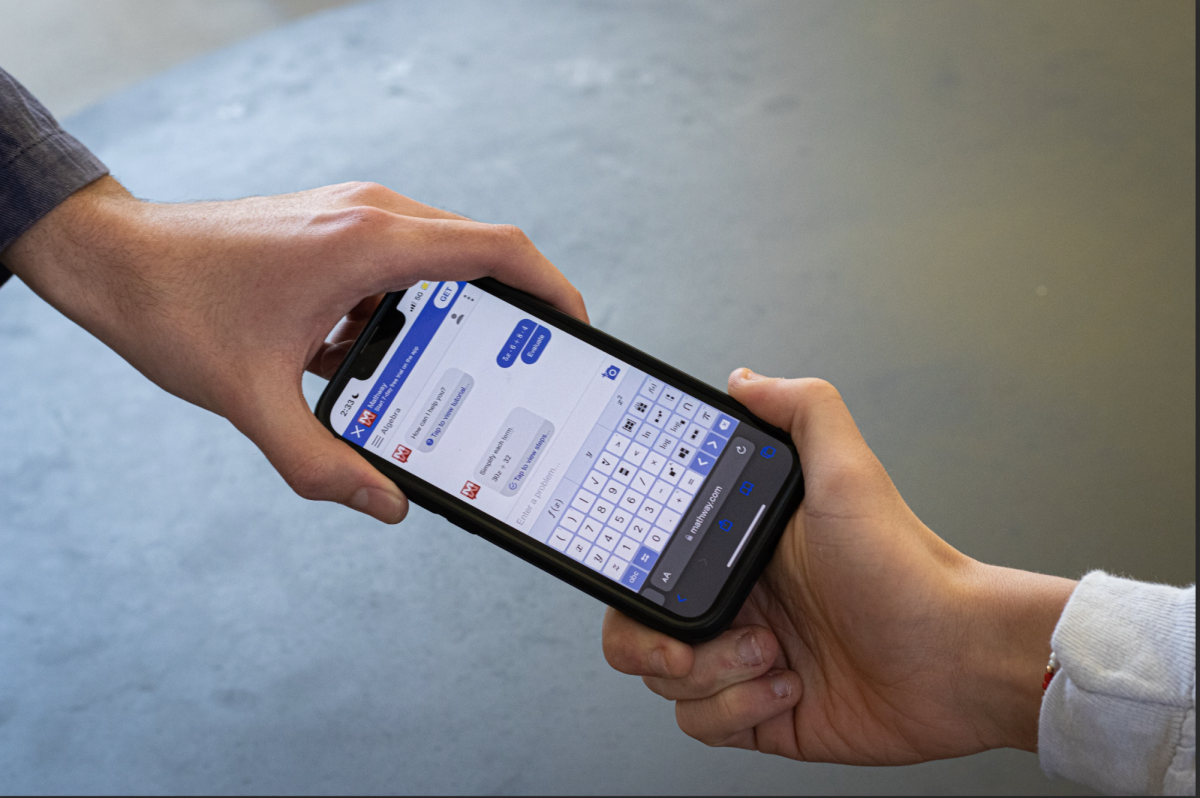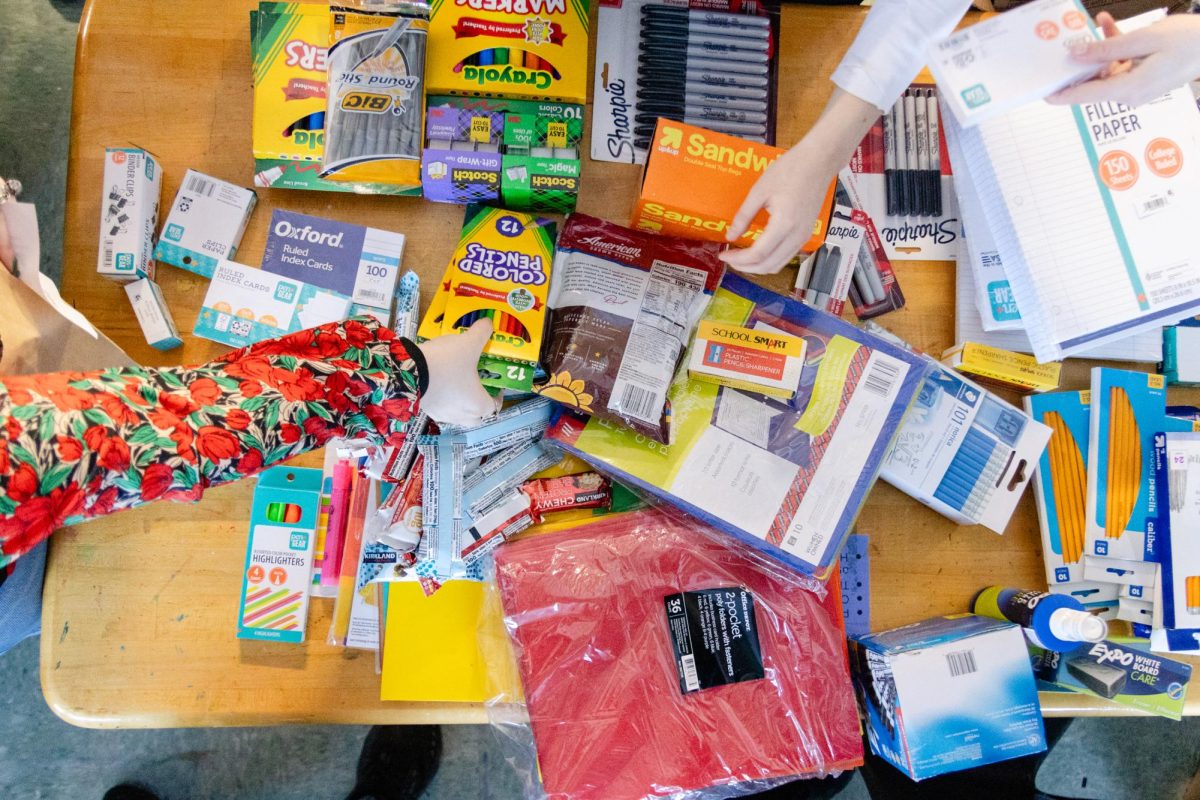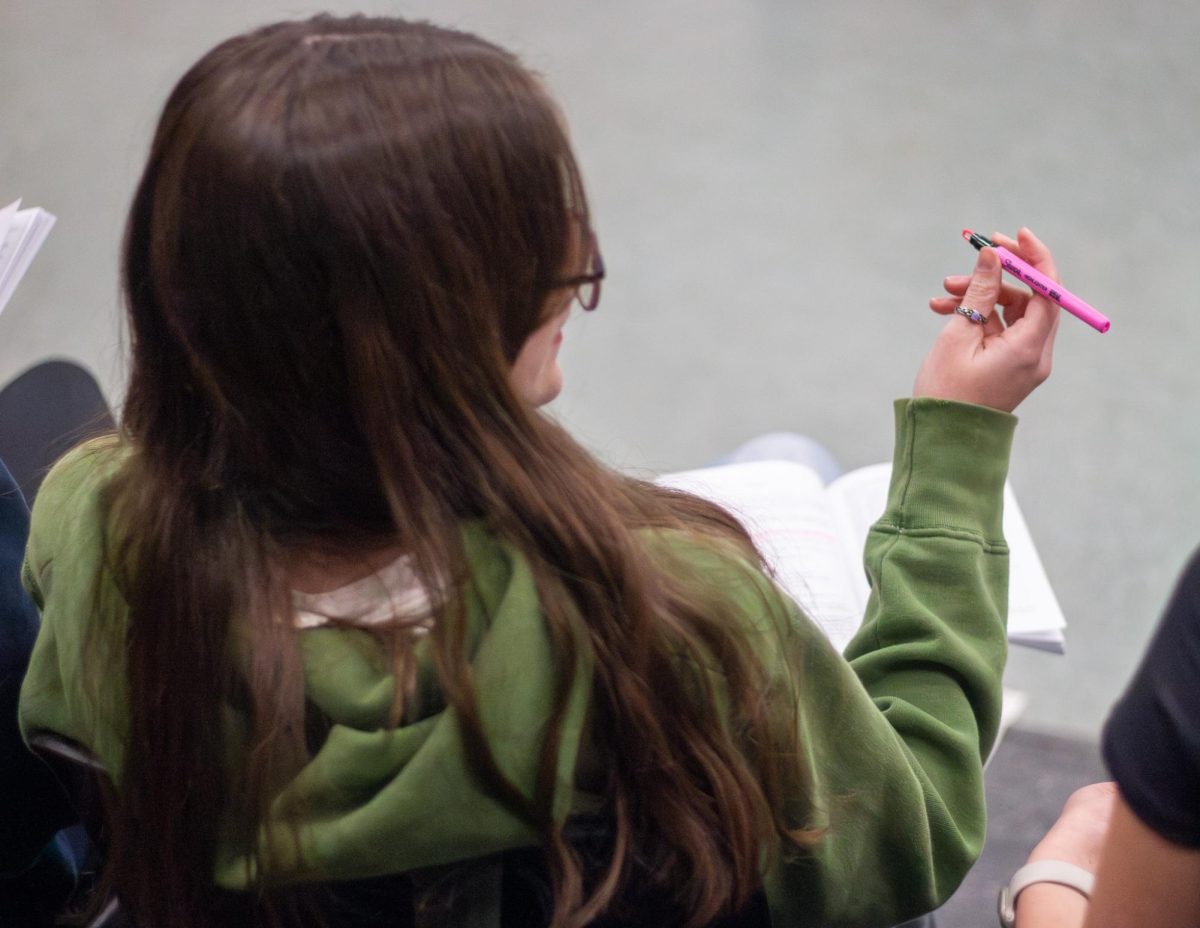Ever since cell phones have been commonly owned, teachers have faced the challenge of cell phones being a distraction to students inside the classroom and out. Teacher opinions differ on the major effects of screen usage.
While cell phones have many useful functions, oftentimes they act as a distraction, especially in the classroom. Spanish teacher Stuart Strecker battles this in his classroom, but he feels that balance is the most important factor in navigating the world with cell phones.
“Students need to learn to live with cell phones because they have them and we all have them,” Strecker said. “We need to learn to manage it in a way that we can learn and still complete our tasks and also have that connectivity that phones allow us.”
Strecker feels that the effects of cell phones are universal among generations; however, people who grew up in the age of technology are especially affected. Younger generations experience a trade-off of skills as a result.
“Young people are wonderful at finding information quickly,” Strecker said. “I do worry about the ability to learn new things that aren’t related to the phone.”
Strecker believes students experience more procrastination as a result of screens. To combat this, sophomore Megan Green has taken it into her own hands by removing distractions from her phone.
“I had to delete Instagram because I was on it so much, but when I deleted Instagram, I just went to TikTok, so I deleted that too,” Green said.
Teachers generally agree that the biggest changes have been social. Science teacher Steve Heffernan feels that screens are damaging to the social development of teens.
“We’re trying to figure out how we fit into the world at that age,” Heffernan said. “There’s just too much negative stuff that comes across in social media during a time when you’re sensitive to that stuff.”
Inside the classroom, social changes arise as well, forcing teachers to make adjustments. Strecker has implemented changes in his teaching around cell phones.
“I’ve had to adjust in terms of the way students are different now and the way students interact with each other differently now,” Strecker said. “I think the phones put a barrier with people you don’t know.”
From the student’s perspective, new social norms emanate from phones. Green experiences this with her peers.
“Even in classes that I have a lot of friends in, if we have free time, I’ll be on my phone, they’ll be on their phone,” Green said. “If everyone in the class is on their phones being quiet, you don’t want to be the one person talking.”
According to Strecker, more jobs are integrating the use of cell phones and other technology. Teachers generally believe that younger generations’ skills with technology have the potential to prepare them for the changing world.











